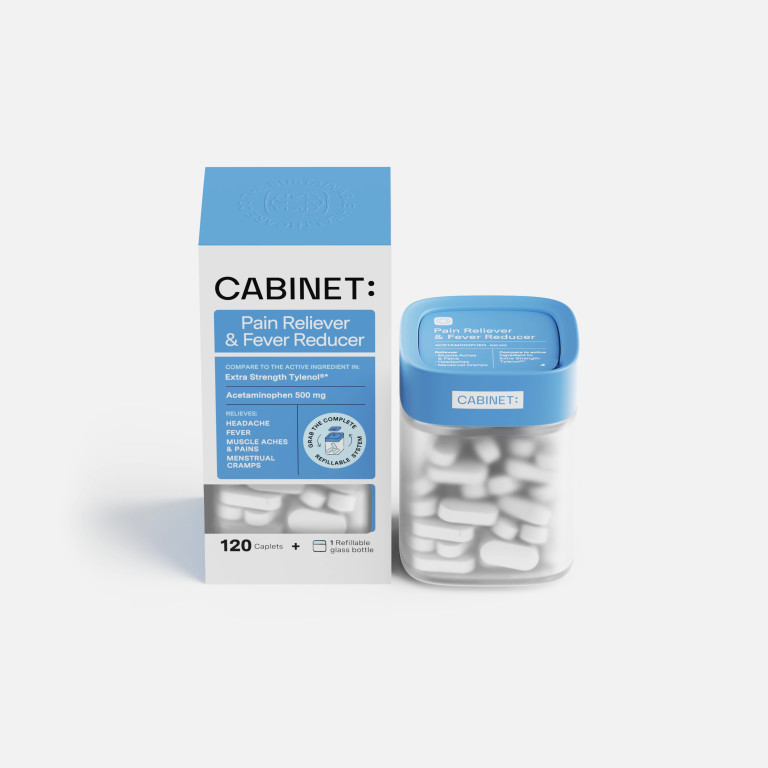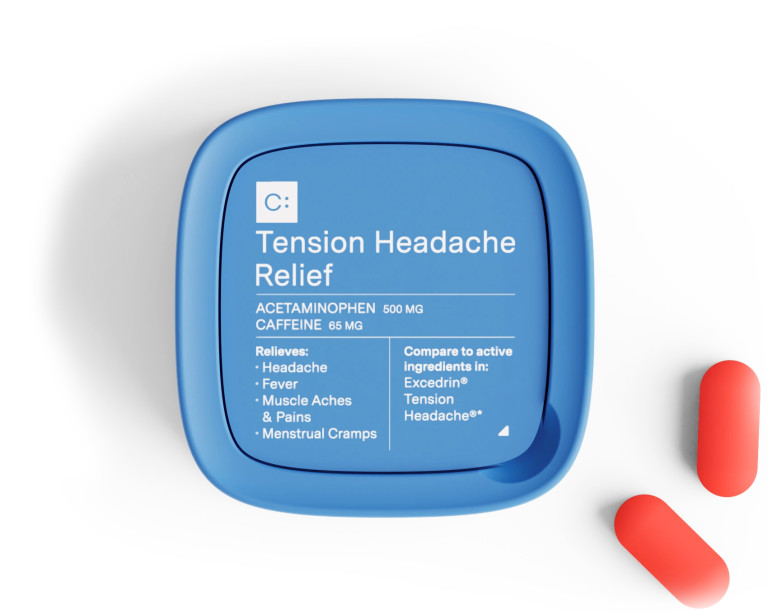Can you combine Excedrin and Tylenol? This is a common question among individuals seeking relief from pain and discomfort. In this article, we will explore the possibility of taking both medications simultaneously and examine the potential risks and benefits associated with this combination.
Understanding Excedrin and Tylenol
Before delving into the topic of combining Excedrin and Tylenol, let us first gain a better understanding of these medications individually.
What is Excedrin?
Excedrin is a brand of over-the-counter medication that is commonly used to relieve headaches and minor aches and pains. It contains a combination of active ingredients, including acetaminophen, aspirin, and caffeine.
Acetaminophen, one of the main ingredients in Excedrin, is a widely used pain reliever and fever reducer. It works by inhibiting the production of certain chemicals in the brain that cause pain and fever. Aspirin, another component of Excedrin, is a nonsteroidal anti-inflammatory drug (NSAID) that helps reduce inflammation and relieve pain. Caffeine, the third ingredient, is a central nervous system stimulant that can enhance the effects of pain relievers and provide a mild energy boost.
Excedrin comes in different formulations, such as Excedrin Extra Strength and Excedrin Migraine, which are specifically designed to target different types of headaches. It is important to read the label and follow the recommended dosage instructions to ensure safe and effective use.
What is Tylenol?
Tylenol, also known as acetaminophen, is another over-the-counter pain reliever. It is widely used to alleviate pain and reduce fever. Unlike Excedrin, Tylenol does not contain aspirin or caffeine.
Acetaminophen, the active ingredient in Tylenol, works similarly to the acetaminophen in Excedrin. It blocks the production of pain-causing chemicals in the brain and reduces fever by acting on the hypothalamus, the part of the brain that regulates body temperature.
Tylenol is available in various strengths and formulations, including regular strength, extra strength, and rapid release. It is important to follow the recommended dosage instructions and avoid exceeding the maximum daily dose to prevent potential liver damage, as excessive use of acetaminophen can be harmful.
It is worth noting that while both Excedrin and Tylenol are effective pain relievers, they have different compositions and may be more suitable for different individuals or specific types of pain. It is always advisable to consult with a healthcare professional before combining or switching medications to ensure safe and appropriate use.
The Active Ingredients in Excedrin and Tylenol
Now that we have a basic understanding of Excedrin and Tylenol, let us explore the active ingredients in these medications and their respective roles in providing relief.
The Role of Acetaminophen
Acetaminophen is the primary active ingredient in both Excedrin and Tylenol. It works by blocking certain chemical signals in the brain, effectively reducing pain and fever. When you take acetaminophen, it is absorbed into your bloodstream and travels to the brain, where it inhibits the production of prostaglandins, which are responsible for transmitting pain signals. By reducing the levels of prostaglandins, acetaminophen helps alleviate pain and reduce fever.
However, it is important to note that excessive use of acetaminophen can lead to liver damage. The liver is responsible for metabolizing acetaminophen, and when taken in high doses or for prolonged periods, it can overwhelm the liver's capacity to process the drug. This can result in liver toxicity, which can be life-threatening. To prevent this, it is crucial to follow recommended dosage instructions and avoid combining acetaminophen with other medications that contain it.
The Impact of Aspirin and Caffeine
Excedrin contains aspirin and caffeine in addition to acetaminophen. Aspirin is a nonsteroidal anti-inflammatory drug (NSAID) that can help reduce inflammation and relieve pain. It works by inhibiting the production of prostaglandins, similar to acetaminophen. However, aspirin also has antiplatelet effects, meaning it can help prevent blood clot formation by inhibiting the aggregation of platelets.
Caffeine, on the other hand, acts as a stimulant and can enhance the analgesic effects of both aspirin and acetaminophen. It works by constricting blood vessels in the brain, which can help alleviate headaches. Additionally, caffeine can increase the absorption and effectiveness of pain medications, making them work more quickly and efficiently.
When combined with acetaminophen and aspirin, caffeine can provide a synergistic effect, enhancing the overall pain-relieving properties of Excedrin. However, it is worth noting that excessive caffeine consumption can lead to side effects such as increased heart rate, jitteriness, and difficulty sleeping. It is important to consume caffeine in moderation and be aware of your personal tolerance levels.
In summary, the active ingredients in Excedrin and Tylenol play crucial roles in providing relief from pain and fever. Acetaminophen acts as a pain reliever and fever reducer, while aspirin and caffeine in Excedrin provide additional anti-inflammatory and stimulant effects. However, it is essential to use these medications responsibly and follow recommended dosage instructions to avoid potential side effects and complications.
The Potential Risks of Combining Excedrin and Tylenol
While combining Excedrin and Tylenol may seem like a convenient option for enhanced pain relief, it is essential to consider the potential risks involved. Understanding the potential dangers can help individuals make informed decisions regarding their health and medication usage.
Overdose Risks
Both Excedrin and Tylenol contain acetaminophen, a common pain reliever and fever reducer. Acetaminophen is generally safe when used as directed, but taking too much can lead to serious health complications. Combining Excedrin and Tylenol could inadvertently exceed the recommended daily dosage of acetaminophen, increasing the risk of liver damage and other adverse effects.
The recommended maximum daily dose of acetaminophen for adults is 4,000 milligrams. Excedrin Extra Strength contains 250 milligrams of acetaminophen per tablet, while Tylenol Extra Strength contains 500 milligrams per tablet. If an individual takes the maximum dose of both medications, they would consume a total of 1,500 milligrams of acetaminophen, which is well below the daily limit. However, it is important to consider other sources of acetaminophen, such as cold and flu medications, as they may also contain this ingredient. Taking multiple medications that contain acetaminophen can easily lead to unintentional overdose.
It is crucial to consult a healthcare professional before combining Excedrin and Tylenol or any other medications to ensure safe usage. They can provide personalized advice based on an individual's medical history, current medications, and overall health.
Side Effects of Drug Interaction
Mixing medications can sometimes result in adverse side effects. While Excedrin and Tylenol are generally safe when used as directed, combining them may increase the likelihood of experiencing side effects.
One potential side effect of combining these medications is stomach upset. Both Excedrin and Tylenol can irritate the stomach lining, leading to symptoms such as nausea, indigestion, and abdominal discomfort. Individuals with a history of gastrointestinal issues may be more susceptible to these side effects.
Another possible side effect is gastrointestinal bleeding. Excedrin contains aspirin, a nonsteroidal anti-inflammatory drug (NSAID) that can increase the risk of bleeding in the stomach and intestines. Tylenol, on the other hand, does not have this effect. However, when combined, the aspirin in Excedrin may potentiate the risk of gastrointestinal bleeding, especially in individuals who are already at a higher risk due to factors such as age, previous ulcers, or the use of other medications that increase bleeding risk.
Dizziness is also a potential side effect of combining Excedrin and Tylenol. Both medications can cause drowsiness and dizziness individually, and when taken together, these effects may be intensified. This can impair an individual's ability to perform tasks that require focus and coordination, such as driving or operating machinery.
Therefore, it is important to be aware of any potential interactions and consult a healthcare professional if you have any concerns. They can evaluate your specific situation and provide guidance on the safest and most effective pain relief options.
The Benefits of Combining Excedrin and Tylenol
Despite the potential risks previously discussed, there may be certain situations where the benefits of combining Excedrin and Tylenol outweigh the risks.
Enhanced Pain Relief
When used together, Excedrin and Tylenol can provide more comprehensive pain relief than when used individually. The combination of acetaminophen, aspirin, and caffeine can target different aspects of pain, potentially offering greater relief for individuals who do not experience adequate relief from either medication alone.
Potential for Reduced Dosages
Combining Excedrin and Tylenol may allow for lower dosages of each medication, which can be beneficial for individuals seeking pain relief but aiming to minimize their overall medication intake. However, it is important to note that dosages should be carefully monitored to avoid exceeding recommended limits.
Medical Advice on Combining Excedrin and Tylenol
Given the potential risks and benefits associated with combining Excedrin and Tylenol, it is essential to seek medical advice before proceeding.
When to Consult a Healthcare Professional
If you are considering taking Excedrin and Tylenol together, it is recommended to consult a healthcare professional, such as a doctor or pharmacist. They can assess your individual situation, take into account any underlying health conditions or medications you may be taking, and provide personalized guidance on the safety and potential effectiveness of combining these medications.
Safe Use Guidelines
To ensure safe usage, it is important to follow the recommended dosages for both Excedrin and Tylenol. Do not exceed the maximum daily dosage of acetaminophen, and be aware of any potential side effects or interactions. If you experience any adverse effects or have concerns, seek medical attention promptly.
In conclusion, the combination of Excedrin and Tylenol can potentially provide enhanced pain relief for certain individuals. However, it is crucial to weigh the potential benefits against the risks and seek medical advice before considering this combination. Always adhere to recommended dosages and consult a healthcare professional if you have any questions or concerns.












